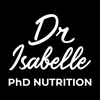COLLAGEN : OUR ANTI-AGING ALLY

As we age, our skin naturally loses its elasticity and firmness, marking the visible beginning of skin aging—a natural process that manifests through signs such as the appearance of wrinkles, a loss of elasticity and firmness, and a decrease in skin hydration levels. As the skin endures the effects of time and exposure to external aggressions, collagen production gradually decreases over the years. The interest in solutions that help maintain younger-looking skin is growing. Among these, collagen supplementation is becoming increasingly popular as it has been shown to be effective in supporting skin health and appearance.
What is Collagen?
Collagen is an essential protein that forms the structure of the skin, tendons, cartilage, and bones. It makes up about 30% of the proteins in our body. Collagen is vital for skin health because it provides structure and firmness, in addition to helping maintain its elasticity.
There are different types of collagen. The main ones are:
- Type 1: The most abundant in the body, mainly found in the skin, bones, tendons, and ligaments.
- Type 2: Found in cartilage, where it helps maintain joint flexibility and elasticity.
- Type 3: Present in the walls of blood vessels, muscles, and internal organs, supporting their structure and integrity.
What affects Collagen Production in Our Body
As we age, collagen production tends to decrease. From the mid-twenties, collagen production declines by about 1% per year. Additionally, excessive sun exposure, a diet rich in refined sugars, alcohol consumption, smoking, lack of sleep, and a sedentary lifestyle are factors that can accelerate collagen production decline.
Sources of collagen
In our diet, collagen is naturally found in animal-based products, such as meat, poultry, and fish. Collagen production requires micronutrients like zinc and vitamin C. Protein-rich foods can also stimulate collagen production because they contain amino acids necessary for synthesizing this protein, such as glycine, proline, and hydroxyproline. Collagen can also be consumed in supplement form.
What Does Science Say About the Effectiveness of Collagen Supplements?
Recent high-quality studies have examined the effects of oral supplementation with hydrolyzed collagen on the skin. These studies included 19 clinical trials with 1125 participants, mostly women aged 20 to 70 years. The results showed that taking hydrolyzed collagen for 90 days could improve the skin's appearance by increasing hydration, and elasticity, and reducing the appearance of wrinkles. Compared to a placebo, hydrolyzed collagen was found to be effective in countering signs of skin aging. One study demonstrated that a daily intake of 2.5 g increased skin hydration and elasticity levels and reduced the appearance of wrinkles. The literature indicates that the effects of the supplement can be observed up to 30 days after use. Therefore, prolonged collagen intake is associated with lasting benefits. Additionally, studies have shown that hydrolyzed collagen has a beneficial effect on joint health. Moreover, studies have shown that hydrolyzed collagen has a beneficial effect on joint health and nail health. Collagen also provides essential amino acids for hair growth.
Collagen supplements on the market are derived from bovine and marine sources. Collagen peptides are effective for improving skin, regardless of their origin (fish, pork, cattle, or chicken), but their effectiveness depends on the composition and concentration of the peptides.
What Dose of Collagen Should You Take? Health Canada has set the maximum daily dose at 10 grams. |
NU·RISH Collagen
The NU·RISH Collagen Complex contains no added sugars, is unflavored, and is made with only four ingredients. It helps reduce the appearance of wrinkles and fine lines, slows down skin aging, gives you a more radiant complexion, and improves joint health, while also strengthening your nails and hair, making it your anti-aging ally of choice.
Vitamin C and Hyaluronic Acid
Vitamin C and hyaluronic acid stimulate collagen synthesis. These molecules work in synergy with collagen to strengthen skin structure and promote hydration.
Hyaluronic acid works by retaining water to hydrate the skin. Its production decreases significantly with age, contributing to the appearance of fine lines, wrinkles, and skin dehydration.
Vitamin C, also known as ascorbic acid, is a potent antioxidant. In addition to helping protect against UV rays, vitamin C plays a role in wound healing, preventing premature cellular aging, and in the production and renewal of white blood cells.
How to Incorporate It into Your Diet?
Collagen powder integrates wonderfully into various recipes. Whether in your coffee or smoothie, in a soup, or in muffins, it mixes easily and allows you to enjoy its benefits without altering the taste of your preparations. It can be easily added to your hot or cold drinks. HERE you will find several recipe ideas for incorporating my NU·RISH collagen powder complex:
Warnings
Consult a doctor before using, especially if you are pregnant, breastfeeding, taking medication, suffering from a medical condition, or taking vitamin C, biotin, or collagen supplements. Keep out of reach of children. Consume within 30 days after opening to ensure benefits. Store at room temperature in a dry place, away from direct light and heat. Not recommended for individuals under 14 years of age. Do not consume more than one serving per day.
@Lucie : Bonjour Lucie, on recommande de prendre seulement la dose présente dans notre complexe collagène (soit, 10 g de collagène avec la cuillère incluse dans le sac).
Y a t il des dangers à prendre du collagène ?
Si on en prend trop, est ce que le collagène s’elimine sans problème ?
Merci d’avance











2 comments